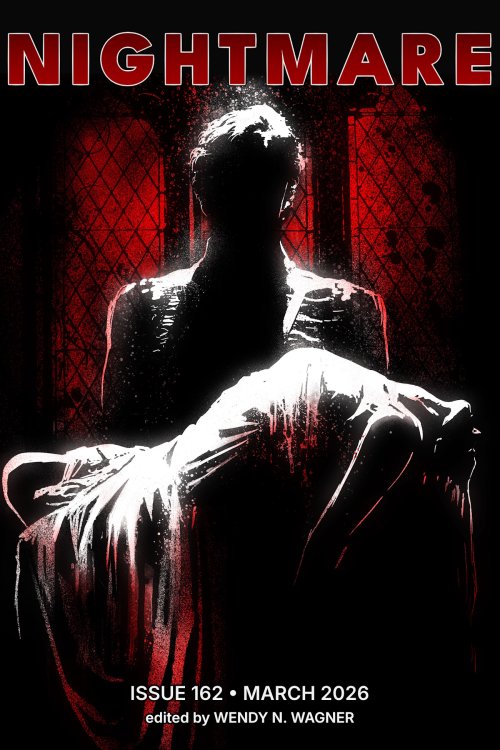I am obsessed with the setting of this story and the complex connections that it embodies, and I really feel like “The Curse of the Boto Boy” is a story only you could have written. Where did this tale come from?
I’ve been meaning to write a boto story for so long—like years—but I could never really find the right entry point for it. There’s a really great Atlantic article by Sushma Subramanian called “The Dolphin Myth that Refuses to Die” that explores the origins and perpetuation of the boto myth in the Amazon. That article really got me thinking about my adoption and my own relation to my birth mother, whom I never knew. I started to conceive of myself as a child of the boto in certain ways and that inspired me to go back and explore this relationship with my mother that I never had.
Our protagonist and her child sit on the teetering intersections of so many worlds—isolation and community; the modern and the traditional; the common wild and the unusually fantastic. If his father had not come for him, would the boy have shed his human teeth and changed? (What a fantastic image, by the way.)
I think so. And he definitely would have been ostracized from the community in a similar way his mother is, simply for thinking differently than the elders want her to. I think there’s a parallel in the metaphor there. I wanted the reader to take away some measure of hope that the mother would find her own place by allowing her son to find his. You’re right that this story is built upon the support of liminal spaces. Both mother and son exist in this weird in-between place and that’s what draws them together. But their relationship is not sustainable and both of them have to find ways to connect with a society beyond themselves, even if they are still on the periphery.
At the beginning of the story, our protagonist compares herself to all manner of animals of the world, but having a child seems to bring her into humanity, or at least to join her son in “humanity.” What becomes of her after the end, when the thing that kept her grounded leaves her?
I had originally written the story with an alternate ending where the mother goes to the nearby city and starts a new life there, but it felt a little too neat, and perhaps a bit counterintuitive to her character. I don’t really know what becomes of her. As unsatisfying as it is, I think it’s up to the reader to decide what they believe this world has to offer her. I get the sense that she probably has lived in this community for as long as she is able, but I also don’t think there is any community she would truly feel completely a part of. Some people always live on the outside. I think that’s okay. They just need to learn how to be at peace with that.
I see that you are a poet as well as a writer of fiction. Many writers struggle with one or the other, and I find it’s rare to find someone who can do both well. How do you put together a short story compared to a poem? Is the process very different? How does your practice in one inform the other?
I actually don’t think my process is really too different. The biggest difference is that I tend to first conceive of verse sonically, whereas with prose it’s more narrative. Most of my poetry is pretty narrative anyway, so being able to pull from my experience with fiction to know when an idea begins and ends is helpful. Vice versa, being a poet definitely helps me pay more attention to the line level of my prose, makes me more careful with syntax, diction, breaks, things like that. Though, any form of writing is just about figuring out how to communicate your headspace to a reader most effectively. Sometimes that’s a three-line haiku, sometimes it’s a novel.
You had a book come out in 2022, Abicus Blues, congratulations! What’s next for you?
Thank you! Abicus Blues was a labor of love for several years, so it really meant a lot for people to finally be able to see it. More recently, I was accepted into the Iowa Writers’ Workshop where I just began my MFA in Fiction this past August. So, much of my time is going into my studies and teaching in the English Department. But I am also putting the finishing touches on a short story collection and am in the middle of a second novel based on my time working in juvenile detention centers around Los Angeles. I hope to be able to share more about both of those projects soon!









